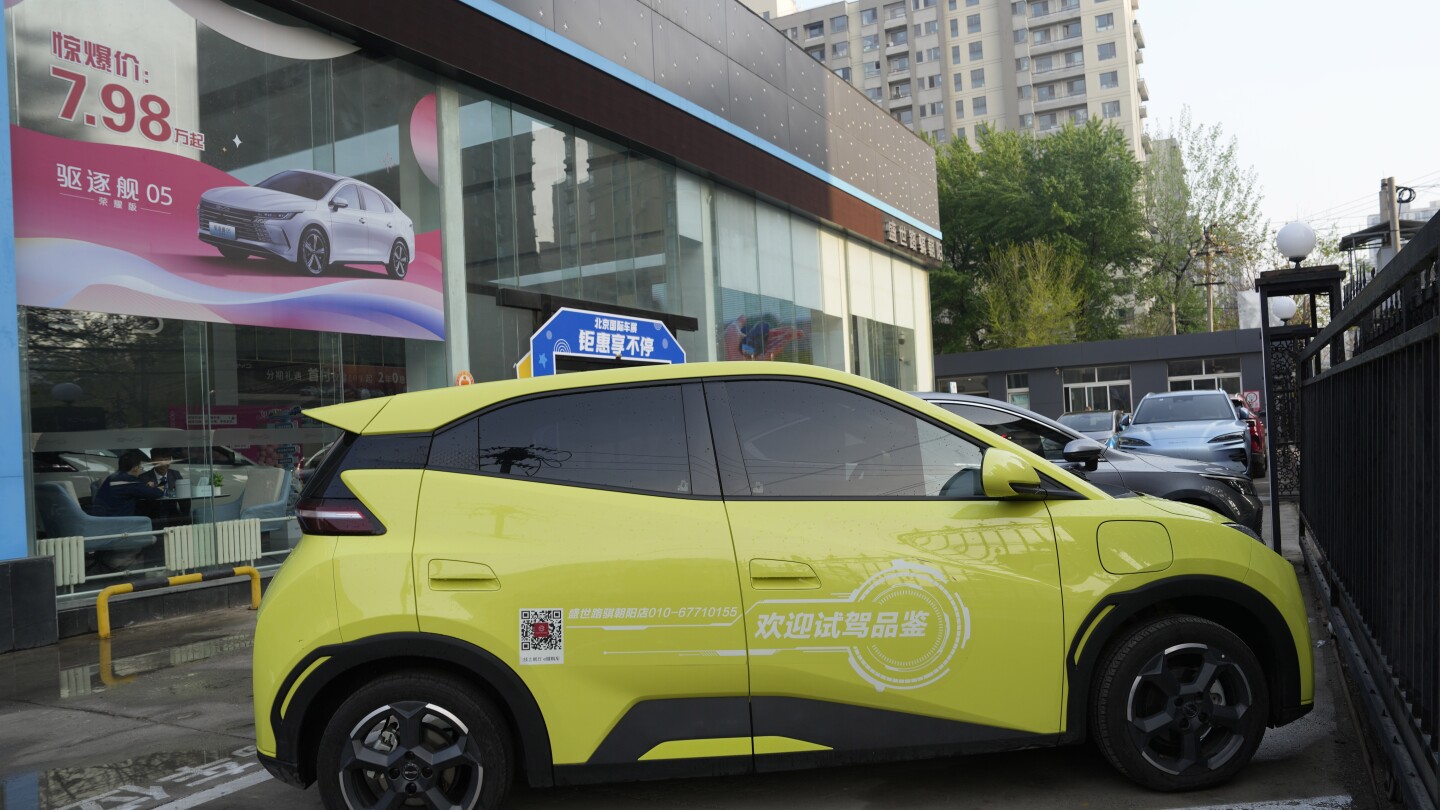The car [christened the Seagull], launched last year by Chinese automaker BYD, sells for around $12,000 in China, but drives well and is put together with craftsmanship that rivals U.S.-made electric vehicles that cost three times as much.
“Any car company that’s not paying attention to them as a competitor is going to be lost when they hit their market,” said Sam Fiorani, a vice president at AutoForecast Solutions near Philadelphia. “BYD’s entry into the U.S. market isn’t an if. It’s a when.”
U.S. politicians and manufacturers already see Chinese EVs as a serious threat. The Biden administration on Tuesday is expected to announce 100% tariffs on electric vehicles imported from China, saying they pose a threat to U.S. jobs and national security.
There’s no single miracle that explains how BYD can manufacture the Seagull for so little. Instead, [Caresoft Global company president Terry] Woychowski said the entire car, which can go 252 miles (405 kilometers) per charge, is “an exercise in efficiency.”
Higher U.S. labor costs are a part of the equation. BYD can keep costs down because of its expertise in making batteries — largely for consumer products — that use lithium iron phosphate chemistry. They cost less but have lower range than most current lithium-ion batteries.
BYD would have to modify its cars to meet U.S. safety standards, which are more stringent than in China. Woychowski says Caresoft hasn’t done crash tests, but he estimated that would add a couple thousand dollars to the cost.
Given how these cars have a bad habit of randomly catching fire, I’ll be avoiding these at all costs. No way they’ll reliably meet US safety standards. That’s not something I want some company to fake.
BYD cars actually seem to be more reliable than other electric car brands, as they have slightly higher raw numbers of incidents than other companies, but sell almost 10 times as many cars as their closest competitors.
Also, gas and hybrid vehicles are up to 100 times more likely to catch fire than EVs, so even if BYD were particularly bad they’d still be safer than most vehicles in America.
US safety standards? Pretty sure China build their Teslas domestically because the US produced ones don’t meet Chinese safety standards
You guys are using the propaganda numbers.
No way they’ll reliably meet US safety standards.
The linked article mentions that the Seagull presently doesn’t meet US Safety Requirements. But that’s probably the least of our worries.
BYD and its line of EVs is an economic scatter bomb Made in China. BYD’s products are heavily subsidized by the PRC and built by unionless “slave labor.” It doesn’t matter at all if the Seagull makes one yuan of profit, like the Chinese solar panel market they’re created to flood the market and later, when the competition folds during the inevitable “race to the bottom”, attain market dominance. Even if BYD does meet US safety standards, even with heavy US import taxes and tariffs applied, their EVs would still sell for less than a Volt or a Tesla. At that point, how could the average US car buyer not be tempted?
This is not to say that American automotive industry is without blame or was somehow blindsided, having dropped the ball as they did back in the 1970s with the first wave of Japanese imports. The US government must share the blame for being at least 10 years too late on having in place a national EV charging strategy much like the Highway Act of the 1956. I guess, like the pre-2008 banks, everyone was just making too much money to do anything about it.
Here’s an article over at Electrek regarding the present US EV situation. While I won’t say I entirely agree with their analysis they do make many legitimate points regarding EV strategy.






